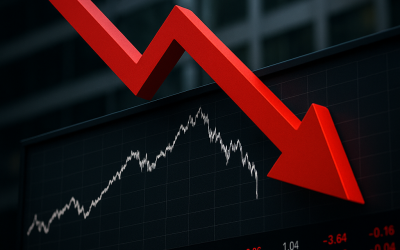Asian Firms Chasing European Growth Face Political Landmines and Supply Chain Risks Few Are Ready to Manage
Asian companies are accelerating their push into European markets, lured by growth potential and diversification. Yet, beneath the surface, they’re running headlong into a minefield of political volatility and supply chain vulnerabilities that most are dangerously underprepared to navigate. This article dissects the real challenges, exposes overlooked risks, and lays out what strategic leaders must do to avoid costly missteps.
Europe: The Allure and the Reality Check
On paper, Europe looks like a natural next step for ambitious Asian firms. The continent offers a vast, affluent consumer base, advanced infrastructure, and the promise of stability compared to other global regions. But the reality is far less straightforward. The post-pandemic landscape has seen a surge in protectionist policies, regulatory scrutiny, and geopolitical uncertainty—especially in the wake of Russia’s invasion of Ukraine and ongoing US-EU-China tensions.
Many Asian executives, seduced by Europe’s reputation for openness and rule of law, underestimate just how fragmented and politicized the market has become. The EU is not a monolith; regulatory regimes, labor laws, and even consumer sentiment can differ wildly between member states. Add in the rise of economic nationalism, and the risk profile escalates rapidly.
Key facts:
- Foreign direct investment (FDI) screening mechanisms have proliferated across the EU, targeting sectors from tech to energy.
- Supply chain disruptions—driven by war, sanctions, and pandemic aftershocks—have exposed the fragility of “just-in-time” models.
- Public and political scrutiny of Chinese and other Asian investments has intensified, especially in strategic industries.
In short, the European opportunity is real, but so are the landmines. Leaders who rely on outdated playbooks or assume business as usual will be blindsided.
Political Risk: The New Cost of Doing Business
Political risk in Europe is no longer a theoretical concern—it’s a daily operational reality. Asian firms, particularly those from China, South Korea, and Japan, face a barrage of regulatory hurdles, shifting compliance standards, and rising skepticism from both governments and the public.
What’s changed?
- FDI Scrutiny: European governments are aggressively vetting foreign acquisitions and partnerships, especially in tech, infrastructure, and energy. Deals that sailed through a decade ago now face months of review or outright rejection.
- Sanctions and Export Controls: The Russia-Ukraine conflict has triggered waves of sanctions, some of which impact Asian firms indirectly through supply chain entanglements or secondary sanctions risk.
- Public Sentiment: Anti-globalization rhetoric and concerns over data privacy, security, and labor practices are fueling resistance to foreign ownership or influence—particularly from China.
Many Asian firms are caught flat-footed, lacking the political intelligence or local partnerships needed to anticipate and mitigate these risks. Too often, they rely on legalistic compliance rather than strategic engagement, missing the broader context that shapes regulatory decisions.
Actionable insight: Political risk management is not a box-ticking exercise. It requires continuous monitoring, scenario planning, and—critically—building trusted relationships with local stakeholders. Firms that treat Europe as a uniform, rules-based market will pay the price in delays, fines, or failed investments.
Supply Chain Fragility: The Unseen Weak Link
While political risk grabs headlines, supply chain fragility is the silent killer of Asian expansion strategies in Europe. The region’s complex regulatory environment, combined with pandemic aftershocks and geopolitical tensions, has created a perfect storm for operational disruption.
Key vulnerabilities:
- Overreliance on Single Sources: Many Asian firms still depend on tightly integrated supply chains rooted in Asia, making them vulnerable to shipping delays, tariffs, or sudden regulatory changes.
- Regulatory Fragmentation: Compliance with EU-wide standards is just the starting point; national and even regional rules can create hidden bottlenecks or additional costs.
- Logistics and Labor Shortages: Europe’s aging workforce, combined with post-Brexit labor disruptions and pandemic-era logistics chaos, has driven up costs and slashed reliability.
Too many Asian entrants underestimate the complexity of building resilient, locally adapted supply chains in Europe. The temptation to “copy-paste” Asian models is strong—but it’s a recipe for disaster when local realities bite.
Actionable insight: Leaders must invest in diversified sourcing, local partnerships, and real-time supply chain visibility. This isn’t just about cost—it’s about survival. Those who treat supply chain resilience as a strategic imperative, not a back-office function, will outlast the competition.
Regulatory and Cultural Complexity: The Hidden Cost Drivers
Beyond politics and logistics, Asian firms face a labyrinth of regulatory and cultural hurdles that can quietly erode margins and stall growth. Europe’s regulatory environment is notoriously complex, with overlapping EU directives, national laws, and sector-specific rules. Compliance is a moving target, not a one-time hurdle.
Key challenges:
- Data Privacy and Digital Regulation: The EU’s GDPR regime is just the tip of the iceberg. New rules on AI, cybersecurity, and digital sovereignty are in the pipeline, with steep penalties for non-compliance.
- Labor and Environmental Standards: European consumers and regulators expect higher standards on labor rights, sustainability, and corporate governance. Shortcuts or missteps can trigger reputational damage or legal action.
- Cultural Misalignment: Asian management styles and business practices often clash with European expectations around transparency, stakeholder engagement, and decision-making.
Many Asian firms underestimate the “soft” costs of market entry—endless paperwork, stakeholder consultations, and the need for local credibility. These are not optional extras; they are essential to building trust and avoiding costly backlash.
Actionable insight: Invest early in local expertise—legal, regulatory, and cultural. Build diverse teams that can bridge the gap between headquarters and local operations. The firms that succeed are those that learn fast, adapt faster, and never assume their way is the only way.
Strategic Moves: What Real Leaders Do Differently
Most Asian firms chasing European growth are playing catch-up, reacting to crises instead of shaping their destiny. The winners—those who actually build sustainable, profitable European businesses—think and act differently.
What sets them apart?
- Proactive Risk Intelligence: They invest in political and market intelligence, not just compliance. They map out scenarios, identify trigger points, and build contingency plans before trouble hits.
- Local Partnerships: They don’t go it alone. They forge alliances with local firms, governments, and stakeholders to gain insight, credibility, and resilience.
- Decentralized Decision-Making: They empower local leaders to make real decisions, adapting strategy to on-the-ground realities instead of waiting for headquarters to catch up.
- Supply Chain Reinvention: They treat supply chain resilience as a board-level priority, investing in redundancy, transparency, and local adaptation.
- Continuous Learning: They treat every setback as data, not failure, and iterate quickly to stay ahead of regulatory and market shifts.
Actionable insight: If you’re not embedding risk intelligence, local partnership, and supply chain resilience into your European strategy, you’re not just behind—you’re exposed. The time to adapt is now, before the next shock hits.
Conclusion
Asian firms eyeing Europe’s growth potential face a landscape riddled with political, regulatory, and supply chain hazards that demand more than surface-level preparation. Success requires a fundamental shift—toward proactive risk management, local adaptation, and relentless operational resilience. Those who underestimate Europe’s complexity will pay dearly; those who adapt with eyes wide open will seize the real opportunities others miss.



0 Comments